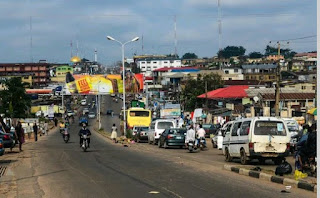By standard of living we mean the degree or extent to which we satisfy our needs or wants. In the olden days, the basic needs were food, shelter and clothing. Today, all countries of West Africa have passed that level. Wants are now satisfied beyond these three basic needs. For example, our basic wants are now better satisfied. The foods we eat are now richer and in greater variety. Most families now eat bread and eggs and drink tea or coffee as breakfast. In the past, these would have been found in only very few houses in West Africa. The clothes we wear are more fanciful, more elaborate and elegant, and the houses we live in are far more superior and more comfortable than those enjoyed by our grandfathers. But in addition to all these, we now enjoy more luxury than our forefathers did. We now have wireless radio and coloured television sets, video and cassette recorders. We can cover a great deal of distance in a very short time by air. Also today, better education and medical facilities are now making it possible to live well and longer. We now also enjoy a faster means of communication or sending messages. We have the telephone, the Internet and the global system of mobile communication. All these, put together, determine the standard of living. So when we say that a country is poor, we are saying that the standard of living in that country, compared with the standard of living in some other countries, is low. Our knowledge about the standard of living in other countries is now better. Not only is it now comparatively easier to travel, but advancement in the publishing industry has made it possible and easier to read books about other countries.
The economics of West Africa is concerned with the nature and causes, that is the determinants of the standard of living in West African countries. Economics is concerned with explanation and discussion, with analysis and not with mere description. It answers questions beginning with "why" rather than "how". It does not answer in the form of "what should be done about it? Rather, it discusses the probable effects of doing this or doing that and thereby helps people to form their own opinion.
The economics of West Africa is concerned with the nature and causes, that is the determinants of the standard of living in West African countries. Economics is concerned with explanation and discussion, with analysis and not with mere description. It answers questions beginning with "why" rather than "how". It does not answer in the form of "what should be done about it? Rather, it discusses the probable effects of doing this or doing that and thereby helps people to form their own opinion.

Comments
Post a Comment